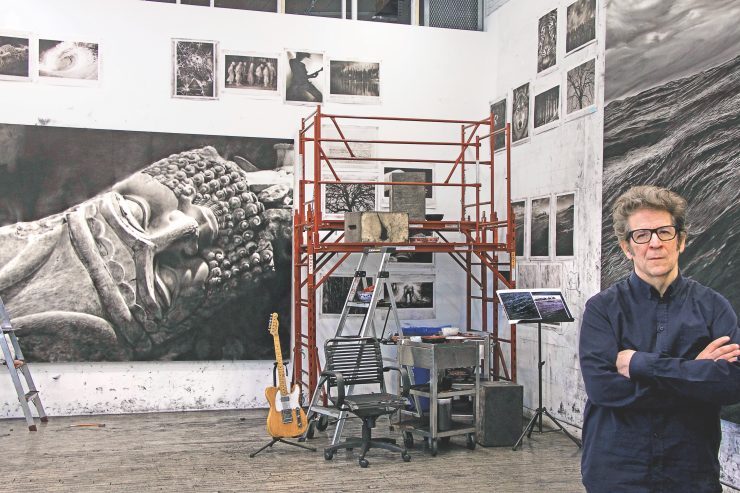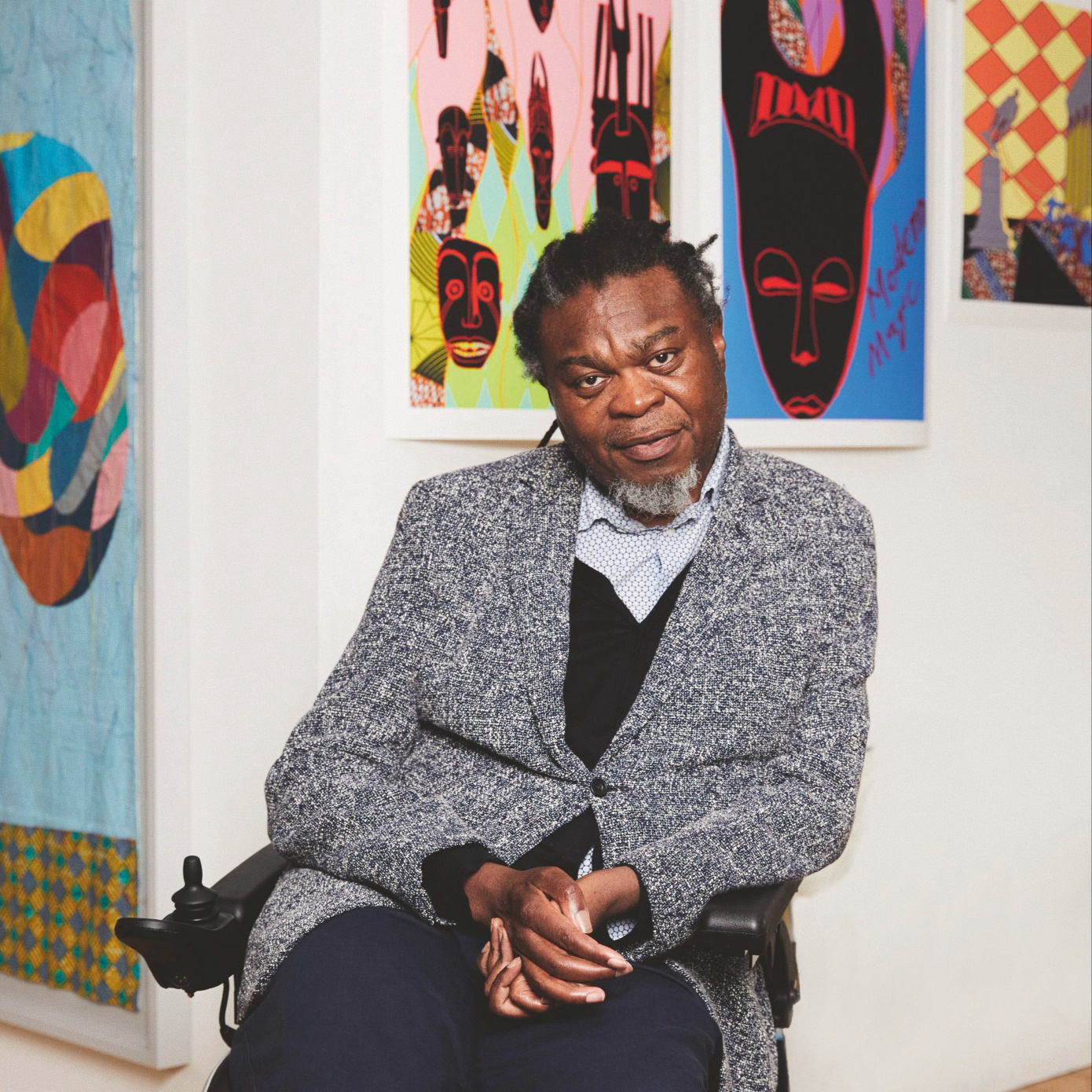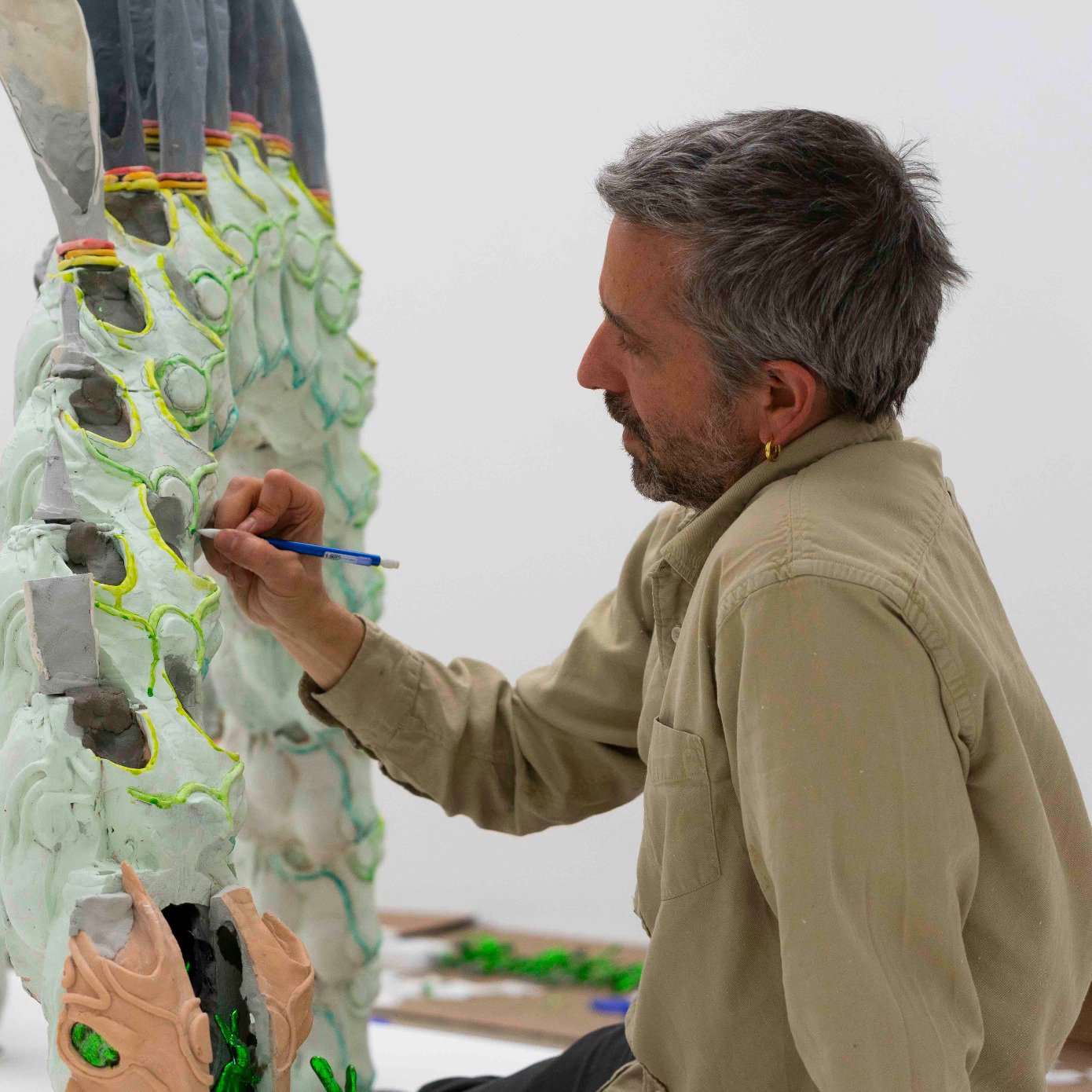
The acclaimed artist Robert Longo was already a feisty, passionate, pugnacious sort. And his work reflected it. Then, four years ago, he had a stroke.
Longo remembers that he was playing basketball—with a group of close friends that included the actor John Turturro—and then suddenly he was flat on his back, listening to his wife and Turturro talk to doctors about what the chances were that his life could be saved.
As the saying goes, what didn’t kill him made him stronger, or at least more committed.
“I saw the dark rider, bro,” says Longo, 64, who is the type of person who says “bro.” He adds, “But if anything, since the stroke I’ve been on fire.”
Indeed, Longo has shows galore lined up, and his Downtown Manhattan studio is full of detailed maquettes showing dollhouse-sized versions of each exhibition.
Most prominently, he has a show, “The Destroyer Cycle,” opening May 3 at his longtime gallery, New York’s Metro Pictures, and the exhibition that was at Moscow’s Garage last year, “Proof: Francisco Goya, Sergei Eisenstein, Robert Longo,” opens at the Brooklyn Museum in September.
His post-stroke bounce back shouldn’t come as too much of a surprise. Longo—who is known for his striking, incredibly detailed charcoal drawings that meld image-appropriating photorealism and old-school draftsmanship—has come back from oblivion before.
“I’ve experienced someone throwing a switch and my career seemed to be over,” he says.
The 1980s were very good to the Long Island native, as it was for many members of the so-called Pictures Generation. His Men in the Cities series, with its torqueing bodies, represented something about energy of the time.
But he got tarred with being too much a part of his era.
“I’m still blamed for the 80s—the original sin of making money,” says Longo, who notes that getting rich was never his goal. He moved to Paris for three years, which he says saved his career.
He also made a famously bad Keanu Reeves sci-fi movie, Johnny Mnemonic, but studio interference was largely to blame. (For those who doubt his filmmaking abilities, go to YouTube to watch the seminal music video he made for New Order’s 1986 song Bizarre Love Triangle, which is totally wicked awesome.)

Somehow, though, other artists who came to prominence and made money at that time, like his longtime bestie and former girlfriend Cindy Sherman, didn’t suffer the same way.
Longo and Sherman met when they were living and studying in Buffalo, New York, in the 1970s. He has a deep, abiding respect for her work, and they are still close. He also thinks that they have a similar wellspring of creativity that many serious artists are able to tap into: the time of transitioning from child to adult.
“The material that I am working with now is the same stuff I was thinking about as a kid: power and aggression,” he says. “Cindy was getting dressed up.” And Longo was on hand in a New York loft when Sherman started her seminal Film Stills. “I remember they were just fucking great,” he says. “It exploded from that point.”
Inside Longo’s studio now, many of the pieces that are coming to Metro Pictures are on the walls, and quite a few deal with race and politics (like an image of football players protesting racial injustice), or what you might call law of the jungle—including a large portrait of a tiger that is mesmerizing and a little trippy to look at.
The biggest drawing of all is what Longo calls “my Raft of the Medusa,” referring to the French Romantic masterpiece by Théodore Géricault. It’s a kind of shipwreck scene like the original, but this time it’s based on a Doctors Without Borders photograph, showing immigrants afloat on an endless ocean (topical indeed in this era of “travel bans”). But the picture, whose waves are based on a separate photo of the waters around Fire Island, makes the viewer slightly seasick: “I want to put you in the boat,” says Longo.
His process is “tedious and slow” and requires the hands of assistants, though Longo notes that he’s not running a Koons-esque factory. “There are no rules of how to do charcoal drawings at this scale,” he says. “If it was just me, it would take years.”
Often derived from photographs, but with the image substantially changed, these large works are drawn with what is essentially charcoal dust, using brushes. And Longo and his crew don’t work on them laid flat on a table, as you might suspect.
Longo wants the scene to burn into your brain. “I hate collage,” he says, half-jokingly, because that medium represents some kind of image- diffusion that he can’t tolerate. “I want collision! I want power!”
In a world of Instagram and fake news, Longo aims to stop you in your tracks. “There are so many images in the world,” he says. “But I am slowing it down, so you really look.”




